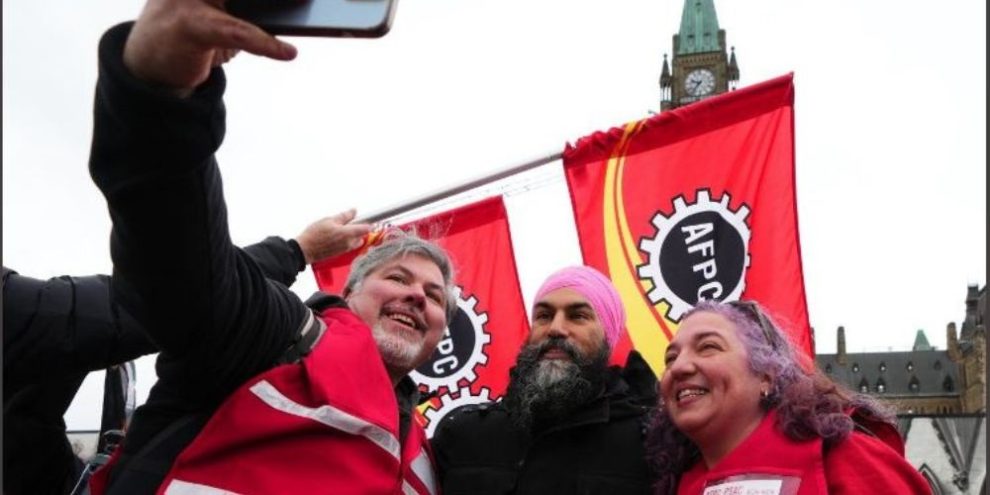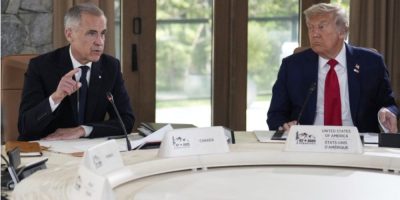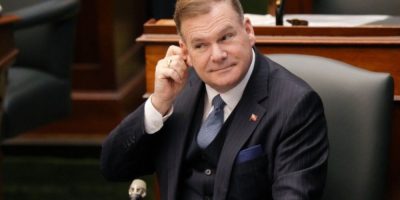
By Stephanie Taylor and Mickey Djuric in Ottawa
Prime Minister Justin Trudeau has often been followed by crowds of people looking to snag selfies, but with the largest federal public-sector strike in decades underway, Jagmeet Singh is the one receiving rock-star treatment in Ottawa.
The federal NDP leader visited the picket line near Parliament Hill multiple times this week, appearing to be the only party leader to have shown face-to-face support to the thousands of public servants who walked off the job starting Wednesday.
"It is a nice moment for New Democrats to show Canadians, particularly working-class folks, that come hell or high water they are standing with them and they always stand with them," said Mélanie Richer, a former director of communications for the federal party.
The Public Service Alliance of Canada's decision to strike amid stalling negotiations with the federal government is landing in the middle of a political fight for the support of organized labour and the working class.
Statistics Canada shows that 74 per cent of public-sector employees belong to a union, an increase of about four per cent from 1997, according to 2021 data.
In contrast, union jobs in the private sector have dropped to 14 per cent in 2021 from 19 per cent in 1997. Women account for the largest share of all union members.
Despite that decline, parties are jockeying for position to appeal to what is still a large voting bloc.
Union leaders and their members have historically found a home with the New Democrats, but for nearly a decade Trudeau has concentrated on eating into that support — and a confidence-and-supply agreement between the two parties has muddied the waters even more.
"This (strike) puts into question who the parties are," Richer said.
The Liberal government agreed under the deal to provide 10 paid sick days to federally regulated workers, and said in this year's federal budget that it would introduce legislation this year banning the use of replacement workers during strikes or lockouts in federally regulated industries— measures Trudeau takes credit for, but Singh says they are New Democrat initiatives.
PSAC said in a statement that the government is "hypocritical" because even though it is promising to introduce anti-scab legislation, some union members are receiving emails from their employers giving them the option to work during the job action. The Canadian Press has not independently verified the communication.
In a statement, the Treasury Board said the employer "does not encourage" employees to cross the picket line, but employees can choose whether or not to come to work, unless they are occupying an essential position.
It said managers have been receiving questions about workers who are unclear on the implications of continuing to work, and the government has "a responsibility to provide factual information" so employees can make "informed decisions."
Both Singh and Trudeau are also watching another opponent, Conservative Leader Pierre Poilievre, who has signalled he is committed to seeking the support of the country's working class — a group he charges is finding itself increasingly isolated under Trudeau.
Although Poilievre regularly attacks Trudeau for his elite exterior and extols the virtues of common people, the Tory leader's nearly 20 years in the House of Commons shows a record of supporting back-to-work legislation.
He once espoused the belief that members of the union currently on strike should have a chance to opt out of paying their dues.
The federal Conservatives have so far steered clear of telling the workers to return to their jobs, instead saying the strike itself and the service disruptions it is beginning to cause are the fault of Trudeau's incompetence.
Calgary MP Stephanie Kusie, who serves as the party's critic for the Treasury Board in Parliament, told reporters this week that the striking public servants are also paying high prices thanks to inflation.
Dan Robertson, who served as the Conservatives' chief strategist during the 2021 federal election campaign, when Erin O'Toole led the party, suggested that the Tories might have an edge with some unionized workers.
Although parties are in a closer fight for those in the private sector, recent polling suggests that those in public-sector unions are more likely to support Poilievre's Conservatives, Robertson said.
Poilievre should focus on the concerns of those individuals if he wants to form the next government, Robertson said, arguing they are the same for all working- and middle-class people: affordability, retirement, security and wages.
The federal Tories should look no further than Ontario Premier Doug Ford's Progressive Conservative government to be reminded of the power of courting union votes, Robertson said.
They gained the endorsement of the province's trade unions in the last provincial election — a historic feat for any conservative party.
But Ford has also become a cautionary tale used by labour leaders such as Mark Hancock, the national president of the Canadian Union of Public Employees.
Last fall, some 55,000 education workers found themselves at the centre of a labour dispute that galvanized the union movement after Ford turned to the notwithstanding clause to push a contract on them. The government ultimately backed down in the face of widespread backlash.
Hancock said he dislikes Poilievre and makes a point of telling members he speaks to across the country not to trust him, even as the Conservative leader makes a play for workers.
"When they are using the language we use, when they're talking about workers, when they're trying to appeal to them, it definitely makes our work harder," he said
Richer echoed that sentiment, pointing out that while Poilievre had no qualms about delivering coffee and doughnuts to protesters with last year's "Freedom Convoy," he has been absent from the picket line.
"Poilievre isn't who he pretends he is."
Singh and other NDP MPs have been quick to point out that the Conservatives may be the Liberals' only dance partner if they decide to pursue back-to-work legislation.
That's a step neither Trudeau nor his ministers have mentioned, as negotiations between the union and government continue.
Singh has ruled out helping the government pass any legislation of the kind.
A confidence-and-supply agreement has the NDP supporting the minority Liberals through key votes in the House of Commons to avoid an election until 2025, in exchange for advancing NDP priorities.
During negotiations, the NDP made it clear that if the Liberals ever considered back-to-work legislation, "they could 100 per cent not count on the NDP," said Richer, who said the agreement was drafted during the CP Rail strike.
As federal parties try to court workers, the president of the country's largest private-sector union said their response to the current strike will be remembered.
"Silence in the face of this struggle is just not on," Unifor national president Lana Payne said in a statement Friday.
"The federal Conservatives have their chance now to show they actually support working people and their Charter rights and the exercising of those rights to improve living standards. ... But I’m not holding my breath."
Payne added that Unifor, which boasts more than 300,000 members, "fully expects" Trudeau's government to work with the Public Service Alliance of Canada to reach a collective agreement at the bargaining table.
Banner image: THE CANADIAN PRESS/Sean Kilpatrick
This report by The Canadian Press was first published April 21, 2023.





